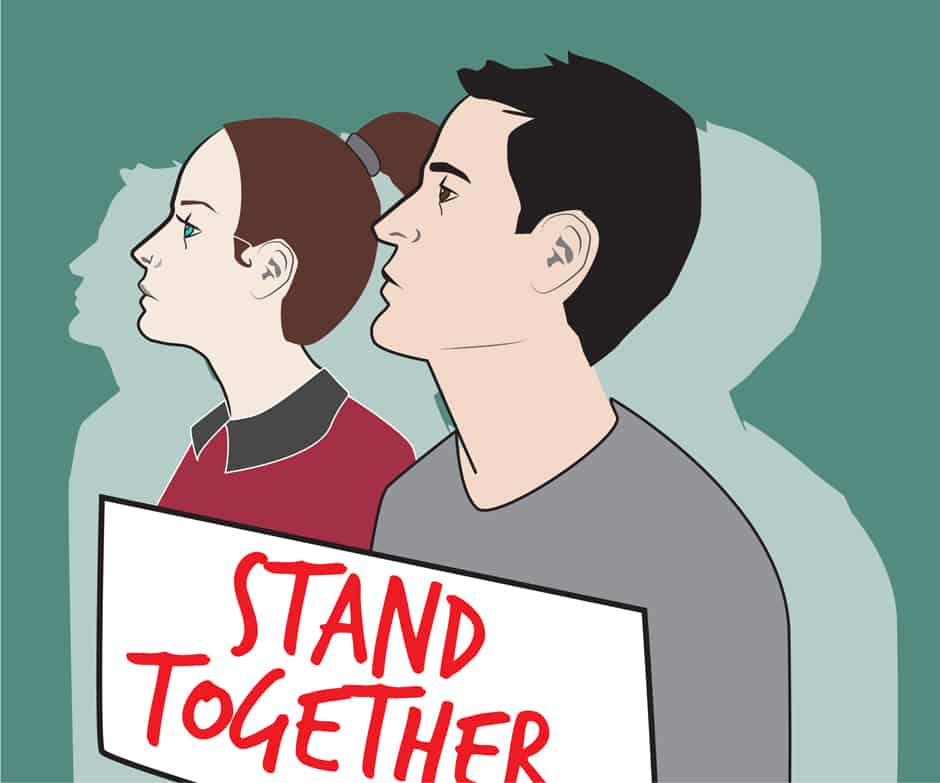A controversial issue currently being batted around is the line between speaking as a member of a minority or disadvantaged group and speaking on its behalf as an ally. Many allies of modern human rights movements — dedicated to furthering the causes of feminism, anti-racism, and LGBTIQQ2SA (lesbian, gay, bisexual, trans, intersex, queer, questioning, 2-spirited, and allies — hereafter referred to as LGBT) activism — have reported instances of unjust treatment when advocating on behalf of marginalized groups. Some people closer to the issues in question have lashed out against allies for their supposed ignorance: if you haven’t experienced oppression yourself, how could you possibly presume to speak out against it with any legitimacy? This clash is extremely contentious and often manifests in heated exchanges, particularly over social media.
One recent example drawn from Western pop culture is the case of hip-hop artist Macklemore’s well-known single “Same Love,” in which he raises awareness of LGBT issues. The song fueled a lot of anger within the LGBT community, given the fact that Macklemore identifies as a heterosexual male. Some argue that Macklemore has no idea what it’s like to feel oppressed and therefore has no basis upon which to address the very personal issues mentioned in the song, much less profit from them through his own artistic endeavours.
As a member of the LGBT community, I do understand why others reacted negatively towards the popularity of the song and the subsequent publicity Macklemore received for it. I understand why people are easily upset when allies speak out on issues that they have not necessarily been faced with personally. Nevertheless, in my opinion, the opposition demonstrated by some marginalized groups against well-meaning allies is neither appropriate nor beneficial in the long run. We need to take into consideration the way that allies communicate their support, what their intentions are, and whether they produce a positive outcome for these movements.
The way by which allies communicate their support is crucial in determining whether or not a line has been crossed. It is essential for allies to understand what they are advocating for and for them to approach these topics sensitively, with respect and maturity in mind.
Self-identifying privilege is particularly important for those who would come out as allies for any marginalized cause. An awareness of any potential innate bias is a necessary prerequisites for allies, given its implications for the dynamic between the community and supporting groups. Generally, most privileged people are not always aware of their inherent advantage. They often grow up blind to oppression and live in a euphoric world, unaware of their relative edge.
Allies who are aware of their own identities and their accompanying privilege are in a unique position to help open the minds of others to the oppression that occurs in society. Allies help bring issues of social injustice to light for the general population in a way that the concerned community cannot do on its own. By maintaining some distance from the core of the problem, allies straddle the line and can appeal to the public effectively on behalf of those most affected.
In “Same Love,” Macklemore croons, “I might not be the same, but that’s not important. No freedom ’til we’re equal, damn right I support it.” He communicates his support effectively, disclosing that he is aware of his identity. In doing so, he dismisses it as being irrelevant to the message. His intention is to contribute to the movement for equal rights.
Ultimately, the intent of allies is most important. If someone has good intentions, and is genuine and passionate about the cause, then attacking them is the last thing we should be doing. Many of those in marginalized groups know what it is like to feel attacked, so why expose others to scorn and hatred? Most allies have good intentions, which is what makes them allies in the first place.
Whether you like it or not, allies help produce a positive outcome for these movements by building a strong network of support. Their contributions to human rights movements help spread awareness of many important issues. Limiting the voices of allies is problematic and hinders their ability to contribute to human rights movements. In order for us to truly progress as a society, we need to stop silencing the allies.
Manuel Augusto is a second-year student at UTM studying professional writing and gender studies.


